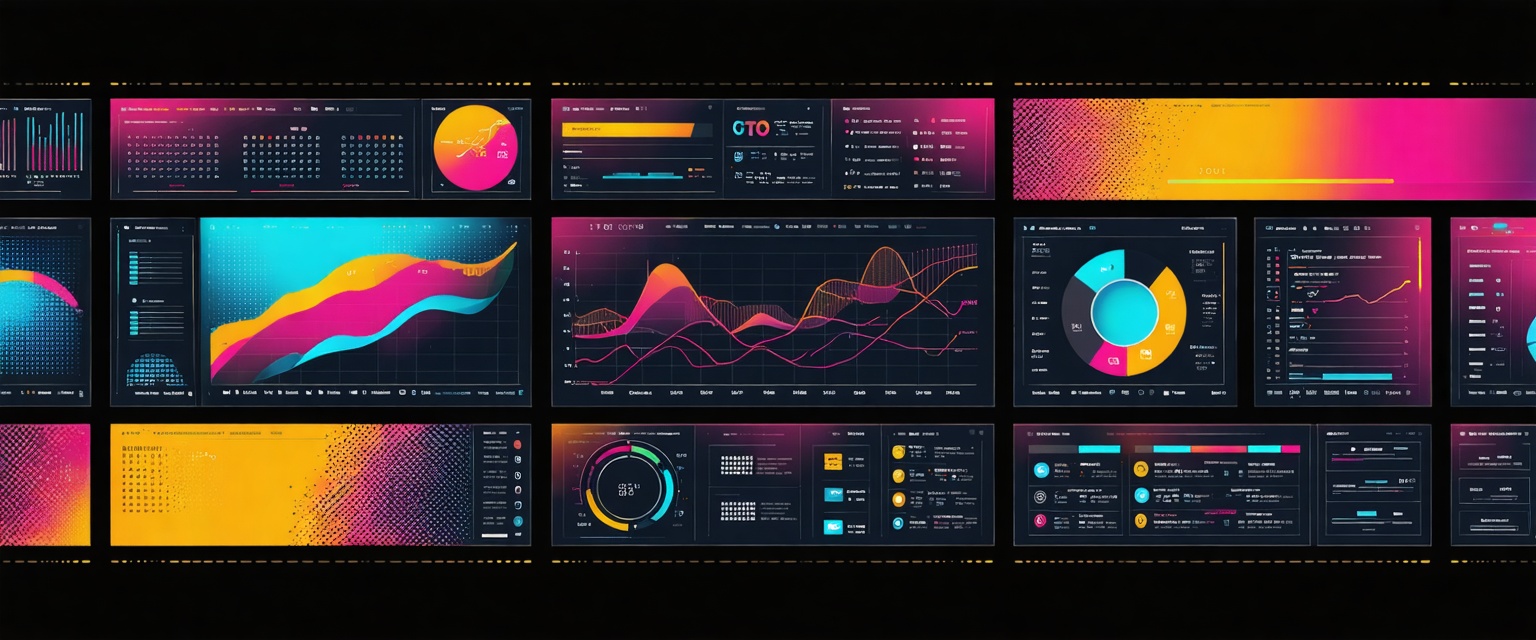Discover how AI agents enhance manufacturing efficiency by automating vendor contract analysis—saving time and revealing key strategic insights for procurement.
Procurement directors in manufacturing often lose hours sorting through dense vendor contracts, missing red flags and cost-saving opportunities. Manual review stalls decision-making and slows negotiations.
But with recent advances in Agentic AI, it’s now far easier to extract key terms, flag risks, and surface insights automatically.
Datagrid’s data connectors make this possible, pulling contract data from various systems into one streamlined workflow. This article explains how AI agents are transforming vendor contract analysis into a faster, smarter process.
The Basics of Manufacturing Vendor Contract Analysis
Manufacturing vendor contract analysis is the detailed review of supplier agreements, focusing on terms, compliance, pricing structures, and risk factors. This process has become crucial as supply chains grow complex, regulations multiply, and cost pressures intensify across manufacturing.
Procurement directors must ensure contracts align with operational goals, cost controls, and risk mitigation strategies. Their analysis directly affects supplier reliability, cost management, and regulatory compliance.
When contracts go wrong, the fallout can be severe, from production disruptions to major financial losses.
Manufacturing companies typically face significant supply chain disruptions that reduce annual profits. Contract terms on force majeure, contingency planning, and alternative sourcing can dramatically impact a company's resilience during these disruptions.
Good contract analysis drives cost control, with well-negotiated terms saving manufacturing companies on procurement costs. For manufacturers with thin margins, these savings can determine profitability.
Modern manufacturing contracts contain intricate pricing structures, detailed compliance requirements, and complex performance metrics that demand sophisticated analysis to fully understand and use effectively.
The Value of AI-Powered Contract Analysis for Procurement Directors
Contract analysis isn't just paperwork; it's a strategic lever affecting supplier relationships, cost management, and production reliability. AI-powered analysis transforms this tedious process into a competitive edge.
Contract Analysis as a Strategic Procurement Tool
For procurement directors, AI-enabled contract analysis provides insights that directly impact manufacturing efficiency and cost control. AI automatically extracts and analyzes key contract terms, uncovers cost-saving opportunities, spots potential risks, and aligns contracts with broader manufacturing goals.
AI tools detect patterns across thousands of supplier agreements, revealing opportunities for consolidation and optimization impossible to spot manually.
Enhancing Negotiation and Supplier Management with AI Insights
AI changes how procurement directors handle negotiations and supplier management. By analyzing historical contract data, it identifies trends and benchmarks that provide crucial leverage in negotiations.
The technology tracks supplier performance against contractual obligations, catching non-compliance issues early.
When preparing for negotiations, AI quickly identifies favorable and unfavorable terms across your supplier base, arming you with comprehensive market intelligence.
A manufacturing procurement director for a major automotive company found that their AI-powered contract analysis system identified potential savings during supplier contract renewals by flagging pricing inconsistencies across similar components.
What’s Slowing Down Procurement Directors in Contract Review
Procurement directors face numerous challenges when analyzing vendor contracts, creating bottlenecks that affect the entire procurement process.
The Inefficiencies of Manual Contract Analysis
Manual contract review forces procurement teams to perform repetitive, time-consuming tasks that drain resources and slow decision-making:
- Line-by-line review of lengthy contracts
- Manual data entry across multiple systems
- Cross-departmental coordination for approvals
- Handling inconsistent contract formats from different suppliers
Manufacturing contracts often contain complex technical specifications, detailed pricing structures, and intricate compliance requirements that make manual review especially challenging.
When contract language gets ambiguous, procurement directors must spend extra time seeking clarification or consulting legal teams.
Current Workarounds Procurement Directors Use
To cope with these challenges, procurement directors have developed various makeshift solutions that fall short in efficiency and scalability:
- Spreadsheets for tracking key terms and deadlines
- Basic document management systems with limited search abilities
- Standardized templates and checklists for review consistency
- Excessive reliance on legal counsel for routine reviews
A procurement director at a mid-sized manufacturing company admitted they have thousands of active supplier contracts, and their current system is essentially a shared drive with folders and a master Excel tracker.
These stopgap measures become inadequate as contract volumes grow and business environments get more complex. Their limitations become obvious when procurement teams face tight deadlines or need to respond quickly to market changes or supply disruptions.
The human element adds another layer of risk—fatigue and attention lapses during manual review can lead to missed terms or misinterpreted clauses.
As procurement directors struggle with these pain points, they're realizing that manual processes can no longer handle the complexity and volume of modern manufacturing contracts.
How AI Agents Automate Manufacturing Vendor Contract Analysis
AI agents are transforming contract analysis in manufacturing procurement through advanced technologies that dramatically improve efficiency, accuracy, and strategic insight.
Parsing and Interpreting Manufacturing Vendor Contracts
AI contract analysis systems use natural language processing (NLP) to understand and extract meaning from complex legal documents. These systems can:
- Automatically identify different contract types and structures
- Extract key information like parties, dates, and obligations
- Recognize standard and non-standard clauses
- Categorize provisions by function (payment terms, warranties, etc.)
Unlike simple keyword searches, advanced AI understands context and can interpret contractual terms even when expressed differently across various agreements.
This ability is particularly valuable in manufacturing, where supplier contracts often contain industry-specific terminology and technical specifications.
The AI's ability to handle unstructured data is especially important in manufacturing procurement, where contracts come in various formats from different suppliers.
AI solutions convert this unstructured information into structured data that can be analyzed, compared, and acted upon. Similarly, AI can automate submittal and change order processing in related industries.
AI-Driven Risk Identification and Compliance Monitoring
One of the most powerful aspects of AI in contract analysis is spotting potential risks and ensuring ongoing compliance:
- Automatic flagging of risky clauses based on predefined parameters
- Identification of missing protections or unfavorable terms
- Continuous monitoring of regulatory changes and their impact on existing contracts
- Real-time alerts for contract milestones, expirations, and potential breaches
AI systems can analyze thousands of contracts simultaneously, giving procurement directors comprehensive visibility into their supplier agreements and associated risks. This enables more proactive risk management across the entire supply chain.
The benefits of implementing AI for contract analysis extend beyond risk mitigation to include substantial efficiency gains, improved accuracy, and enhanced strategic decision-making.
Manufacturing companies that have deployed these technologies report reduction in contract review time, decrease in contract disputes, improved supplier relationship management, and enhanced ability to negotiate favorable terms.
By automating routine aspects of contract review while providing deeper analytical capabilities, AI agents free procurement directors to focus on strategic activities that drive greater value for their organizations.
Datagrid for Manufacturing Professionals
Manufacturing leaders juggle production data, supply chain documentation, and quality control information across multiple systems. Datagrid's AI-powered platform offers specialized solutions that turn these challenges into opportunities for operational excellence.
Supply Chain Documentation Management
Datagrid's system processes thousands of supplier specifications, bills of materials, and compliance certificates simultaneously. The platform extracts critical information to maintain visibility across your entire supply network, helping you quickly spot potential risks and opportunities.
Quality Control Automation
Datagrid analyzes production data, testing reports, and defect documentation to identify patterns and predict quality issues before they escalate. Early detection of manufacturing quality issues provides a significant competitive advantage.
Compliance Support System
AI agents continuously monitor changing industry regulations and automatically cross-reference your documentation to identify compliance gaps requiring attention. This proactive approach prevents violations and ensures your products meet all applicable standards.
Maintenance Optimization Tools
By extracting insights from maintenance logs, equipment manuals, and performance data, the system predicts maintenance needs, reduces downtime, and extends asset lifecycles. Predictive maintenance can reduce costs and eliminate breakdowns.
Production Workflow Analysis
Datagrid processes production reports across multiple facilities to identify efficiency opportunities and best practices. This holistic view enables data-driven decisions that improve throughput and reduce waste.
Product Specification Management
Datagrid automatically extracts and organizes technical specifications from various document formats. This streamlines the product development process and ensures alignment between engineering and manufacturing teams.
Supplier Performance Evaluation
By analyzing vendor documentation, delivery records, and quality reports, the system generates comprehensive supplier scorecards and identifies strategic sourcing opportunities.
By integrating Datagrid into your manufacturing operations, your team can focus on production innovation and process improvement while AI handles the document-intensive tasks that traditionally create information silos and operational inefficiencies. Additionally, Datagrid can integrate HubSpot with DocuSign, enhancing your CRM and document management workflows.
Simplify Manufacturing Tasks with Datagrid's Agentic AI
Don't let data complexity slow down your team. Datagrid's AI-powered platform is designed specifically for teams who want to:
- Automate tedious data tasks
- Reduce manual processing time
- Gain actionable insights instantly
- Improve team productivity
See how Datagrid can help you increase process efficiency.
Create a free Datagrid account.













